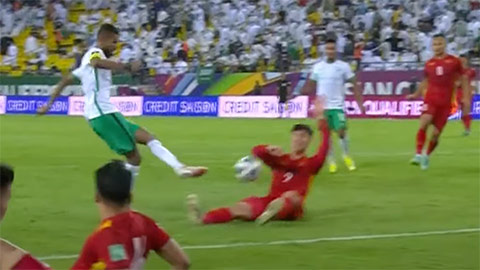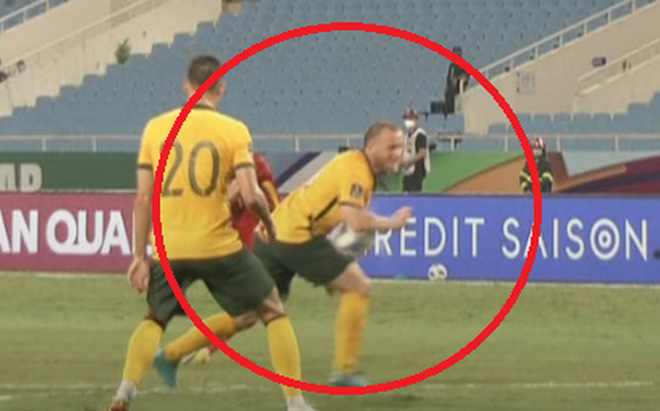How the Gulf Arab favouritism and xenophobia explicitly explains why Turkey refused to join the AFC?
I have written a previous article about Turkey and its switching affiliation between the AFC and the UEFA, given its geographical proximity. Yes, there are a lot of questions, but I guess when you wonder, the current campaign for Qatar 2022 may have provided insight. In particular, Vietnam suffered the most in this stage.
You know, Turkey and Vietnam are not similar to each other. One is already recognised as a middle-sized power in European football, while one is just beginning to breathe the sky of the last round. The qualification for the 2022 FIFA World Cup between them is also different: Turkey belongs to the European front, while my country is Asian. Yet after seeing how the run in Asia worked after just two matchdays, one may conclude why the Turks have little optimism to join the AFC. Best seen with the situation of the 2022 FIFA World Cup qualifying in Asia were Vietnam's games against Saudi Arabia and Australia at home already.
The first match against Saudi Arabia saw the Vietnamese visitors play in the Saudi capital Riyadh. Yes, many Vietnamese weren't so enthusiastic when facing Saudi Arabia, knowing their opponent is already a major football power in Asia. Of course, a major Asian football power equals only to a medium-sized team in Europe, meaning Saudi Arabia and Turkey would've been in the same place if Turkey had been part of the AFC. However, a shock lead from Nguyễn Quang Hải in just 3' was followed by a disciplined performance of the defence, until 55' when a penalty was given by the Uzbek referee Ilgiz Tantashev, and a red card. Only by this red card adding two later penalties that the Saudis was able to overturn the game 3-1, avoiding a humiliating home loss.
 |
| The moment when the ball hit the hand of Đỗ Duy Mạnh in 51'. |
It should be noted that the ball didn't hit Duy Mạnh's hand immediately, it hit to his right before jumping to the hand. After four minutes of consultation with the VAR team, the Uzbek referee decided to take a penalty decision onward, as well as sending Duy Mạnh out of the match. After the game, Saudi Arabia's coach, Hervé Renard (who led Morocco to the 2018 World Cup), claimed that he never saw such a disciplined team like Vietnam, though he was happy that Saudi Arabia won.
Naturally, I don't prefer taking questions after any referee's decision, so I would say the referee had his own to take, I wouldn't blame the Uzbek referee. Yet again, the ghost of the VAR past resurfaced once the team returned home to face Australia, another Asian powerhouse.
The referee of the Vietnam-Australia fixture in Hanoi was a Qatari national, Abdulrahman Ibrahim Al-Jassim. He was noted for his well-mannered attitude but the game's outcome making more and more Vietnamese supporters frustrated. Though I did agree that the stadium was in a bad shape, in which the game was held, given how Australian sports pundits even claimed the Mỹ Đình National Stadium's field like a "cow paddock", it was not the only controversy. A bigger controversy came in 28' when the Vietnamese launched a surprise attack against Australia.
It was when Nguyễn Phong Hồng Duy took a splendid shot, before getting blocked by Rhyan Grant - oh the irony - the same player that would go to score on Australia's hard-fought win in Hanoi minutes later. The ball also hit Grant's chest before deflecting to the hand. VAR took action again, but after consulting in a few minutes, the Qatari referee said "no". This moment would be the major change, as you have seen.
 |
| Rhyan Grant blocking the shot of Nguyễn Phong Hồng Duy in 28'. |
So what was the matter leading to so many discontents among Vietnamese fans? Well, also on the same qualification, you have to look at the Russia-Malta game in Okritie Arena. At the 81', when Russia was only holding a 1-0 lead over the minnows, Daler Kuzayev shot the ball to the hand of Ryan Camenzuli, who was standing in a nearly identical position to Rhyan Grant. Yet the Turkish referee Ali Palabıyık, without hesitation, awarded a penalty despite Maltese appeals. Zelimkhan Bakayev would go on to deliver Russia a 2-0 win, relieving the pressure for the team of Valeri Karpin.
The problem has to be about the handball laws being made by FIFA when VAR was brought into the stadium for the 2018 FIFA World Cup (getting updated for the UEFA Euro 2020). According to the IFAB, the handball decision will be taken based on:
- Deliberately touches the ball with their hand/arm, for example moving the hand/arm towards the ball;
- Touches the ball with their hand/arm when it has made their body unnaturally bigger. A player is considered to have made their body unnaturally bigger when the position of their hand/arm is not a consequence of, or justifiable by, the player’s body movement for that specific situation. By having their hand/arm in such a position, the player takes a risk of their hand/arm being hit by the ball and being penalised; or
- Scores in the opponents’ goal: directly from their hand/arm, even if accidental, including by the goalkeeper; or immediately after the ball has touched their hand/arm, even if accidental.
This left us a question, if these actions are entirely "accidental", then to which extent? Immediately, or indirectly? Then, how to define the body moving to decide a penalty, by a player's movement in a specific position? Did he deliberately touch it?
Saudi Arabia and Australia were the teams that benefited from the very obscure laws. Sure, I can't blame FIFA after assigning these guys to officiate, but it was the abnormal nature of the laws that made the Vietnamese side in a huge disadvantage situation. No surprise that Vietnam was still near the bottom after scoring only a goal, above only China who scored none.
But what made me more resentful is the refereeing style of the AFC revealed the nasty background of the federation itself: a notorious example of corruption. The AFC is designed in a system of hierarchy and racism even before several Asian competitions were held annually. And the winners are no other than the monarchies located in the Persian Gulf.
Why? Well, you have to see Israel, a former AFC member: her story is a tragedy: it used to be among one of Asia's greatest teams but was later expunged following the hostilities escalated between Arab states and Israel. Following the expulsion, Arab teams began to rule football, but they rewrote the laws to ensure Arab domination within the AFC before the rise of Japan halted this Arab domination, in particular Gulf Arab domination. The law was also aimed directly against the development of Iran and Central Asian football to curtail their successes. During the debate of Australia to be an AFC member in 2004, almost nearly half of the Arab members in the AFC attempted to veto the move but was thwarted. Interestingly, the only nation the Arabs did not declare lawsuits against is China, largely because of the political power China has.
Currently, the biggest thief in stealing the needed funds for the poorer regions in Asia is no other than the Gulf Arab states, especially Saudi Arabia, whose football has been greatly benefited from the corrupt nature emboldened by the AFC system designed by them. It was worked to prevent the rise of the other members, even the stronger ones, and to ensure that the AFC is only for the Gulf states to control. Yet these players from the Gulf are also getting much welfare and were given luxurious homes to keep staying in their home countries' leagues rather than moving abroad, in spite of these nations' successes are very limited. Of course, some countries have tried to break out this barrier, notably Oman, Qatar, Kuwait and Bahrain, but not much.
The modern landscape of the AFC doesn't allow the Gulf kingdoms to ignore Japan, Australia, Iran and South Korea, but it has to try to weaken these countries' successes to some parts. Saudi Arabia, for sure, is well-informed that wealth from the corrupt nature of AFC enhanced Saudi Arabia's position. There is a notable example not far away in the previous qualification when Iraq was down 1-2 by Saudi Arabia due to two dubious penalties that were criticised by the supporters as favouring the Gulf kingdom. No doubt: Saudi Arabia qualified for the 2018 World Cup ahead of Australia due to referees' many questionable decisions - before getting trashed by Russia and Uruguay.
 |
| Nawaf Al-Abed (10) celebrating after scoring against Iraq in 2018 qualifiers in Kuala Lumpur. Both of his two penalties had been largely questionable. |
So why did I drag Turkey to this? Well, if Turkey had been an AFC member, it would've trashed Saudi Arabia with at least 6 goals onward. Turkish people breathe football like no others - it is fanatical and passionate. Turkey has won third place in the FIFA World Cup, once, in the country's just second appearance in 2002. Turkish players are notoriously hot-headed, just like almost every Turk. In this case, if the Saudis/Australians were rewarded with such penalties like how Iraq or at least Vietnam suffered, it would be instead, ended up seeing Turkish and Saudi/Australian players fighting in the field. Not like bowing due to weaknesses like us or the Iraqis.
That doesn't mean I praise Turkey: Turkish football is still very much under so many issues, like the majority of the Balkans, Eastern Europe and Middle Eastern states, the biggest being corruption and lack of a fully organised development. But many Turks would agree that they would rather being part of the UEFA, to fight alongside heavyweights and to see itself develop, rather than becoming the King of a continent where corruption is tolerated. Corruption rules the AFC, hampers smaller members in the goods of a minority group. UEFA does have corruption too, but it does care about the other members.
Sadly, Gulf Arab states have learnt nothing from being benefactors. Instead, it abused the AFC for the Sheikhs' own gains. As long as more and more underdogs coming to this ground but not from the Gulf nations or monarchies, they'll be unlikely to be favoured, regardless of their stances. This has dissuaded many countries from joining the AFC, even though they know they may not be better in the UEFA, notably Kazakhstan, Armenia, Azerbaijan and Georgia. Even now Australia started to understand the real nature of the AFC once joining in 2006.
This is why I feel glad that Turkey is not an AFC member.
Comments
Post a Comment